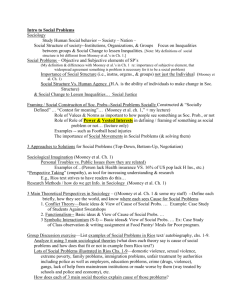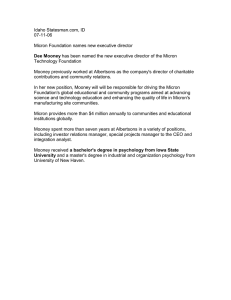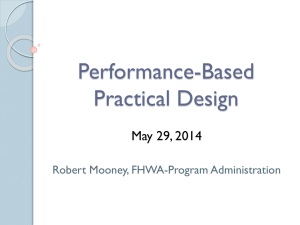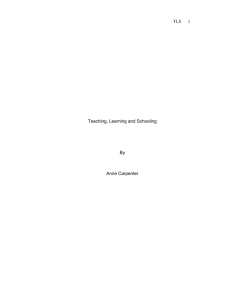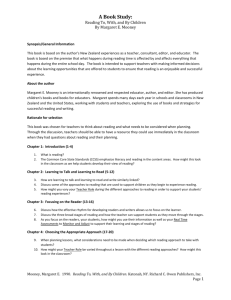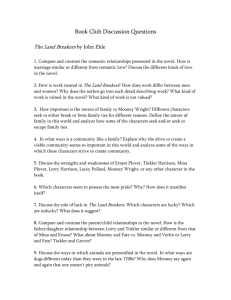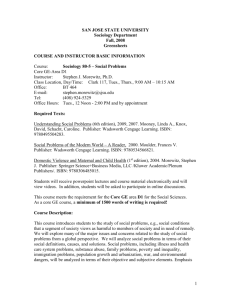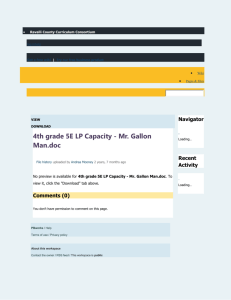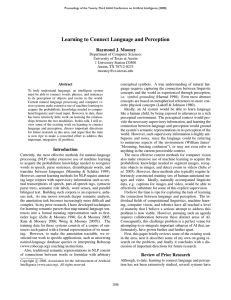Sociology 1010, Introduction to Sociology
advertisement
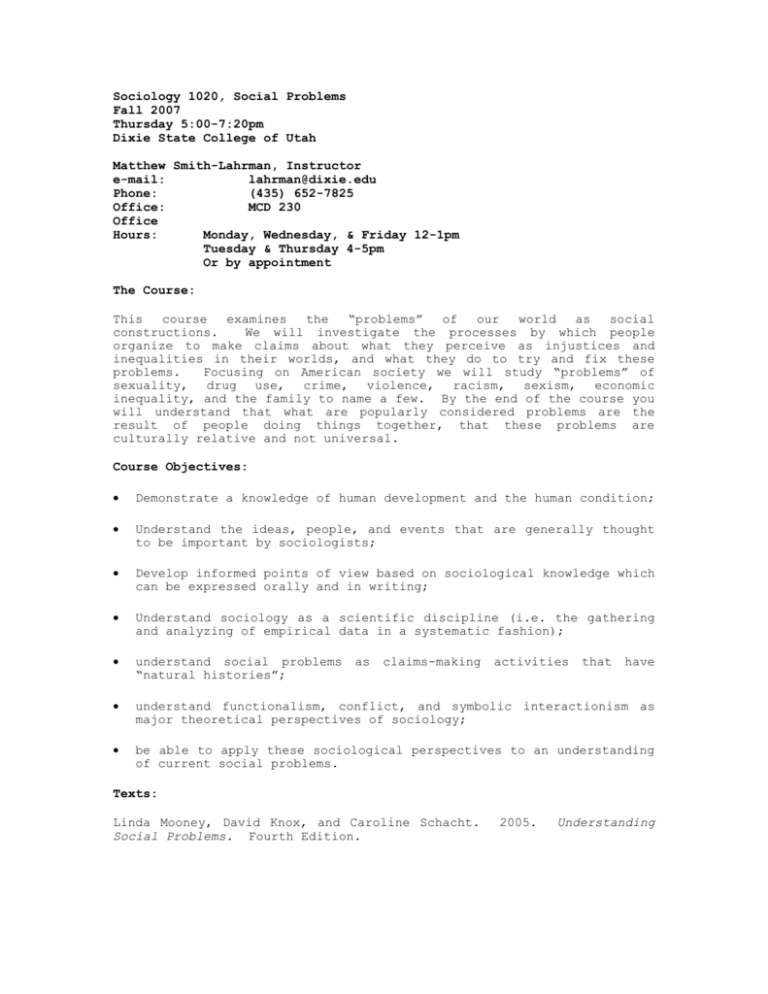
Sociology 1020, Social Problems Fall 2007 Thursday 5:00-7:20pm Dixie State College of Utah Matthew Smith-Lahrman, Instructor e-mail: lahrman@dixie.edu Phone: (435) 652-7825 Office: MCD 230 Office Hours: Monday, Wednesday, & Friday 12-1pm Tuesday & Thursday 4-5pm Or by appointment The Course: This course examines the “problems” of our world as social constructions. We will investigate the processes by which people organize to make claims about what they perceive as injustices and inequalities in their worlds, and what they do to try and fix these problems. Focusing on American society we will study “problems” of sexuality, drug use, crime, violence, racism, sexism, economic inequality, and the family to name a few. By the end of the course you will understand that what are popularly considered problems are the result of people doing things together, that these problems are culturally relative and not universal. Course Objectives: Demonstrate a knowledge of human development and the human condition; Understand the ideas, people, and events that are generally thought to be important by sociologists; Develop informed points of view based on sociological knowledge which can be expressed orally and in writing; Understand sociology as a scientific discipline (i.e. the gathering and analyzing of empirical data in a systematic fashion); understand social problems “natural histories”; understand functionalism, conflict, and symbolic interactionism as major theoretical perspectives of sociology; be able to apply these sociological perspectives to an understanding of current social problems. as claims-making activities that have Texts: Linda Mooney, David Knox, and Caroline Schacht. Social Problems. Fourth Edition. 2005. Understanding Evaluation: Grades will be based on the following: Three exams each worth twenty-five percent of your final grade. A term paper worth twenty-five percent of your final grade. Exams: You will take three exams. Each will be a mix of multiple choice and essay questions. They will be graded on a standard scale: 90 80 70 60 – – – – 100 percent of total points 89 percent of total points 79 percent of total points 69 percent of total points = = = = A B C D Paper: You will write a paper that applies the concepts we learn in class to a social problem of your choice. I will hand out the paper assignment on September 20, the paper is due on November 29. LATE PAPERS WILL BE GRADED DOWN ONE FULL GRADE. Attendance: Attendance is NOT mandatory. However, I lecture on material that is not in the text. There will be exam questions from my lectures, questions that are not from the text. If you miss class you risk missing information that will be on the exam. NOTE: Your final grade is based on your letter grades, not on your accumulation of points. ANOTHER NOTE: class. You must complete all exams and assignments to pass this FINAL NOTE: I reserve the right to (a) adjust individual grades based on my evaluation of your participation and enthusiasm in the course and (b) make changes to the syllabus during the course if I feel it will benefit the class. ACADEMIC DISCIPLINE POLICY: Academic dishonesty in any form, including, but not limited to, plagiarism on written assignments, submitting other person’s work as one’s own, and cheating on exams or quizzes will not be tolerated at Dixie State College of Utah. Teachers at Dixie State College have the right to manage their classroom environments to ensure a good learning climate. If you are a student with a physical or mental impairment and would like to request accommodations, please contact the Disability Resource Center (652-7516) in Room 201 of the Student Services Center. The Disability Resource Center will determine your eligibility for services based upon complete professional documentation. If you are deemed eligible, the Disability Resource Center will further evaluate the effectiveness of your accommodation requests and will authorize reasonable accommodations that are appropriate for your disability. 2 Course Schedule Week & Topics Readings Week #1 August 23 THINKING ABOUT SOCIAL PROBLEMS Mooney, Chapter 1 Week #2 August 30 DRUGS, CRIME AND VIOLENCE Mooney, Chapters 3 & 4 Week #3 September 6 FAMILY PROBLEMS Mooney, Chapter 5 Week #4 September 13 RACE AND ETHNICITY Mooney, Chapter 9 Week #5 September 20 Exam #1 Hand out Term Paper Assignment Week #6 September 27 GENDER, SEXUAL ORIENTATION Mooney, Chapters 10 & 11 Week #7 October 4 YOUTH AND AGING Mooney, Chapter 12 Week X October 11 No Class Week #8 October 18 ECONOMY: POVERTY Mooney, Chapter 6 Week #9 October 25 ECONOMY: WORK AND UNEMPLOYMENT Mooney, Chapter 7 Week #10 November 1 Exam #2 Week #11 November 8 EDUCATION, POPULATION AND URBANIZATION Mooney, Chapters 8 & 13 Week #12 November 15 ENVIRONMENTAL PROBLEMS Mooney, Chapter 14 3 Week XX November 22 No Class Week #13 November 29 SCIENCE AND TECHNOLOGY Term Paper Due Mooney, Chapter 15 Week #14 December 6 CONFLICT, WAR, AND TERRORISM Mooney, Chapter 16 Exam #3 Thursday, December 13, 5:00pm 4
